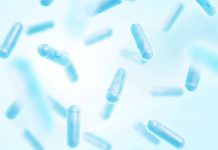
We are all familiar with the human body, but how many of us recognize the presence and persuasion of the human microbiome? More than 100 trillion bacteria, fungi and yeasts live in and on our bodies – an amount ten times higher than our very own cells. As renowned health expert Dr. Frank Lipman discussed with Naturally Savvy Radio hosts Andrea Donsky and Lisa Davis, the health of this huge ‘organism’ profoundly impacts our own health and well-being.
An expert in the field of Integrative and Functional Medicine, Dr. Lipman is no stranger to this omnipresent organism and its influence on human health. “By far the majority of the bacteria in us are actually good bacteria,” Dr Lipman notes, “but what unfortunately happens because we clean our hands with antibacterial soaps, we’re scared to go outside and walk around barefoot, we [eat food and take antibiotics] that kill the good bacteria, it creates [an] imbalance in our system and that becomes a problem.” This imbalance can lead to a whole host of problems, and one of the most commonly observed in his practice is Irritable Bowel Syndrome (IBS). The scales can be tipped back into proper balance however, and he has witnessed tremendous improvement in symptoms when his patients take steps to improve the ratio between the good bacteria and the bad.
Learn more about antibiotics in food
When it comes to maintaining the health of the human microbiome, the reality is that “the most important thing is to watch what you eat,” notes Dr. Lipman. Animal products contaminated with antibiotics, genetically modified foods, processed foods, and sugars can all contribute to a reduction in the beneficial bacteria, shifting the digestive terrain in favour of the bad. The use of antibacterial soaps also jeopardizes the health of the microbiome, and not only does antibacterial soap kill too many good bacteria, but most of them use triclosan which, Dr. Lipman cautions, can actually pose other problems, including issues with thyroid function. “Triclosan is not benign, and most antibacterial soaps have [it],” he warns. “Just wash with soap and water.”
A further contributing factor is the over-prescription of antibiotics and the massive use of antibiotics in food production. “Most antibiotics in the United States are used on livestock in factory farming and that’s creating huge problems,” he notes. The most serious ones being "superbugs and resistance, but the low grade problem it’s creating is this imbalance in the microbiome, or what we call dysbiosis.”
Without question, however, there are times when antibiotics are a must, but in these circumstances probiotics are a noble ally. Dr. Lipman encourages his patients to supplement with probiotics during antibiotic treatment, but concedes that there is not consensus among practitioners whether this is beneficial. As a result Dr. Lipman stresses, “it may not make much difference whether you take it during, but definitely afterwards you need to take probiotics – and lots of them.” This being at least 100 billion per day for a minimum of one to three months. Particularly when a patient undergoes two courses of antibiotics, in addition to the regular dose of probiotics Dr. Lipman has his patients take Be Well probiotics – comprised of a beneficial yeast, Saccharomyces boulardii – for further population control. When choosing probiotics, he recommends looking for high quantities of various strains of Lactobacillus and Bifidobacterium in particular. Since it can be difficult to know exactly what your digestive terrain is comprised of at a given time, Dr. Lipman suggests that probiotics be taken on a regular basis and brands (and therefore varying strains) rotated every 3-6 months to ensure well-rounded exposure. When choosing brands, look for those that back their products with high-quality research and manufacturing practices; Bio K+
is an excellent example of a company committed to research and product quality.
Learn more about probiotics
Interestingly, many years of both gastroenterological and psychiatric research has shown a connection between the health of the gut and emotional states. “Before you treat anxiety and depression with drugs, you should treat the gut,” Dr. Lipman advocates. “The gut is also known as the second brain; there are more neurotransmitters made in your gut than are made in your brain.” Serotonin (a neurotransmitter associated with mood) is, perhaps, the most striking example. In many observed cases, clearing out the digestive tract and treating bacterial imbalance with herbal antimicrobials and a healthy dose of beneficial bacteria improves the symptoms of anxiety and depression without the use of pharmaceuticals.
Antibiotics are intended to kill harmful, disease-causing microbes; unfortunately, they also unintentionally kill our useful microbial allies. In a world overloaded with antibiotics, it is no wonder that the human microbiome is suffering, manifesting in the form of numerous chronic diseases. However, improved digestive health, which is further elucidated in Dr. Lipman’s book, "Total Renewal: 7 Key Steps to Resilience, Vitality, and Long-term Health," and many chronic states of disease, can be prevented or managed effectively via the improved health of your microbiome.
Listen to the full radio show here
Image: adavey










